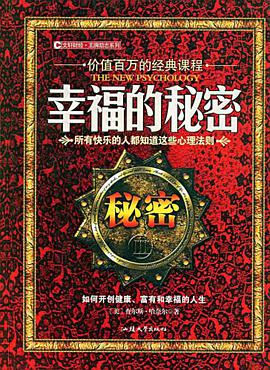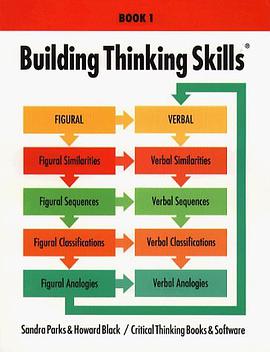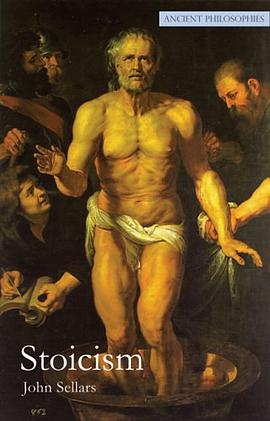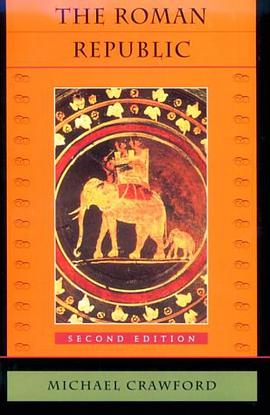

具体描述
Reaching into our own time, Crisis and the Apocalypse of Man confronts the disintegration of traditional sources of meaning and the correlative attempt to generate new sources of order from within the self. Voegelin allows us to contemplate the crisis in its starkest terms as the apocalypse of man that now seeks to replace the apocalypse of God. The totalitarian upheaval that convulsed Voegelin's world, and whose aftermath still defines ours, is only the external manifestation of an inner spiritual turmoil. Its roots have been probed throughout the eight volumes of History of Political Ideas, but its emergence is marked by the age of Enlightenment.
In our postmodern era, discussions of the collapse of the "enlightenment project" have become commonplace. Voegelin compels us to follow the great-souled individuals who sought to go from disintegration of the present toward evocations of order for the future. Such thinkers as Comte, Bakunin, and Marx suffered through the crisis and fully understood the need for a new outpouring of the spirit. They resolved to supply the deficiency themselves. As a consequence they launched us irrevocably on the path of the apocalypse of man.
One of the great merits of Voegelin's analysis is his exposition of the pervasive character of this crisis. It is not confined to the megalomaniacal dreamers of a revolutionary apocalypse; rather, echoes of it are found in the more moderate Enlightenment preoccupation with progress to be attained through application of the scientific method. Faith in the capacity of instrumental reason to answer the ultimate questions of human existence defined men such as Voltaire, Helvétius, Diderot, D'Alembert, and Condorcet. It remains the authoritative faith of our world today, Voegelin argues, demonstrated by our continuing inability to step outside the parameters of the Enlightenment. Are we condemned, then, to oscillate between the rational incoherence of a science that never delivers on its promises and a now discredited revolutionary idealism that wreaks havoc in practice? This is the question toward which Voegelin's final volume points. While not direct, his response is evident everywhere. Crisis and the Apocalypse of Man could have been written only by a man who had reached his own resolution of the crisis.
作者简介
About the Author
Eric Voegelin (1901-1985) was one of the most original and influential philosophers of our time. Born in Cologne, Germany, he studied at the University of Vienna, where he became a professor of political science in the Faculty of Law. In 1938, he and his wife, fleeing Hitler, emigrated to the United States. They became American citizens in 1944. Voegelin spent much of his career at Louisiana State University, the University of Munich, and the Hoover Institution at Stanford University. During his lifetime he published many books and more than one hundred articles. The Collected Works of Eric Voegelin will make available in a uniform edition all of Voegelin's major writings.
About the Editor
David Walsh is Professor of Politics at the Catholic University of America in Washington, D.C. He is the author of The Growth of the Liberal Soul and editor of Eric Voegelin's History of Political Ideas, Volume III, The Later Middle Ages.
目录信息
Editor's Introduction I
Part Nine. The Crisis
1. Helvétius 43
§1. Introductory Remarks 43
§2. The Heritage of Locke 45
§3. The New Philosophy of Existence 51
§4. The Heritage of Pascal 63
§5. Anti-Christian Religiousness 68
§6. Happiness and Virtue 71
§7. Conclusion 81
2. Positivism 88
§1. D'Alembert's Discours prélimina ire 89
§2. The Historicism of Turgot 106
§3. Condorcet's Esquisse 148
3. The Apocalypse of Man: Comte 161
§1. Comte and the Interpretation of the Crisis 161
§2. The Split in the Life of Comte 163
§3. The Continuity in the Life of Comte 174
§4. Mental Unity 185
§5. The Religion of Humanity and the French Revolution 194
§6. Revolution, Restoration, and Crisis 210
§7. Comte's Intuition 234
4. Revolutionary Existence: Bakunin 251
§1. Reaction and Revolution 251
§2. Bakunin's Confession 259
§3. Anarchism 276
§4. Founding the New Realm 283
§5. The Affaire Nechaiev 290
§6. The Late Work of Bakunin 296
5. Gnostic Socialism: Marx 303
§1. The Logic of the Idea 304
§2. Inverted Dialectics 320
§3. Genesis of the Idea 339
Index for Volume VIII 373
CUMULATIVE INDEX 389
· · · · · · (收起)
读后感
沃格林在这套书的最后一卷里,将重心放在了中世纪以后启蒙主义的宗教裂变。很大程度上和以赛亚·伯林的诸多论题类似,如爱尔维修、孔德、迈斯特和巴枯宁等等。在沃格林看来,这些人都导致了激进的革命性主张,剔除了基督启示后却又创造出了一种灵知主义新宗教,带来了西方世界...
评分沃格林在这套书的最后一卷里,将重心放在了中世纪以后启蒙主义的宗教裂变。很大程度上和以赛亚·伯林的诸多论题类似,如爱尔维修、孔德、迈斯特和巴枯宁等等。在沃格林看来,这些人都导致了激进的革命性主张,剔除了基督启示后却又创造出了一种灵知主义新宗教,带来了西方世界...
评分沃格林在这套书的最后一卷里,将重心放在了中世纪以后启蒙主义的宗教裂变。很大程度上和以赛亚·伯林的诸多论题类似,如爱尔维修、孔德、迈斯特和巴枯宁等等。在沃格林看来,这些人都导致了激进的革命性主张,剔除了基督启示后却又创造出了一种灵知主义新宗教,带来了西方世界...
评分沃格林在这套书的最后一卷里,将重心放在了中世纪以后启蒙主义的宗教裂变。很大程度上和以赛亚·伯林的诸多论题类似,如爱尔维修、孔德、迈斯特和巴枯宁等等。在沃格林看来,这些人都导致了激进的革命性主张,剔除了基督启示后却又创造出了一种灵知主义新宗教,带来了西方世界...
评分沃格林在这套书的最后一卷里,将重心放在了中世纪以后启蒙主义的宗教裂变。很大程度上和以赛亚·伯林的诸多论题类似,如爱尔维修、孔德、迈斯特和巴枯宁等等。在沃格林看来,这些人都导致了激进的革命性主张,剔除了基督启示后却又创造出了一种灵知主义新宗教,带来了西方世界...
用户评价
相关图书
本站所有内容均为互联网搜索引擎提供的公开搜索信息,本站不存储任何数据与内容,任何内容与数据均与本站无关,如有需要请联系相关搜索引擎包括但不限于百度,google,bing,sogou 等
© 2026 book.wenda123.org All Rights Reserved. 图书目录大全 版权所有




















